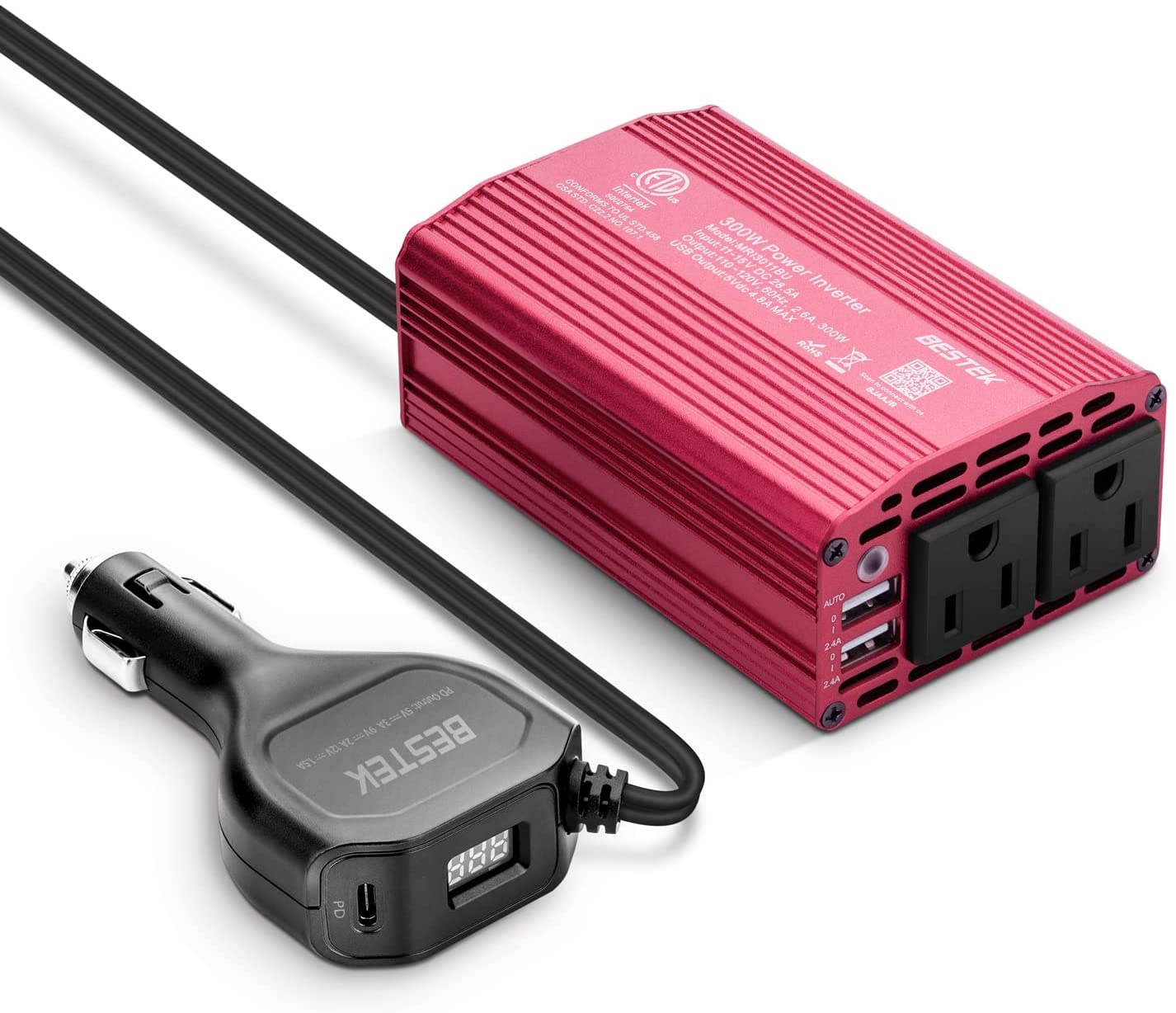Today some of the cheap inverters are really good. In fact I have found some of them are as good if not better than the expensive inverters. They not only work well but some actually put out more than their stated wattage within reason.
But beware a lot of these low cost inverters cut corners and aren't any good. I've heard of people who also found this to be true with a few expensive inverters too.
If you're on a budget and find one that looks good always test it on a bench before installing it. Three things that will point out low quality or corners cut right away are 1, the inverter heats up 2, the output voltage is lower than 110V. NOTE. If you have a modified sine wave inverter you have to use a true RMS meter when measuring the output voltage. If you don't the voltage will appear to be very low when it isn't. The third thing to look for that is a corner cut but doesn't necessarily mean the inverter is low quality if the fuse. Some inverters have an internal fuse which is fine, but, many of the cheep inverters have an internal fuse that is soldered in so for most people it's not user replaceable. As mentioned this doesn't necessarily mean the inverter is low quality and it might not be a deal breaker for you.
Today good inverters don't heat up anything like they did years ago. I've seen a lot of junk but some of these cheap inverters will really surprise you. I have a small one made by a company called BESTEK 300W Power Inverter. I don't know a thing about this company but this little 300 watt inverter has been really good. The fan isn't noisy at all and even when drawing close to 300 watts from it for hours it doesn't warm up at all. It does put out a full 300 watts.
But there is one thing I don't like at all about this inverter. Its fuse is internal and soldered in. That means should it ever blow it's not easily replaceable. The other side to that is there's no reason the fuse should blow because the unit has protection against being overloaded. If the fuse did ever blow it would either be because the unit has a serious problem or the polarity was reversed which would probably destroy the unit not just take out the fuse. Still, I like to have user replaceable fuses. I've seen reviews on their larger inverters that do have replaceable fuses though.
Can fuses just go bad?
Not often but I have seen it happen with fuses that are pushed close to their maximum rating. It might take years but it is possible. That's why I like to have replaceable fuses. But if you buy a cheep inverter the fuse can't be replaced in and never push it anywhere near its limit you're probably never going to have an issue with the fuse.
What is the best way to test an inverter?
The best way to test one is first make sure it can provide its stated wattage. You should always oversize inverters by twenty percent so when continuous load testing load the inverter to eighty or at the most eighty five percent of its rated capacity. It should be able to provide that and even go as high as ninety percent of its rated capacity and not get hot to the touch. Now that's assuming it's where it has plenty of ventilation. Even my 1000 watt inverter under full load only gets warm to the touch.
If you see an unstable output voltage after the unit has been on for some time this could be a sign of corners cut too. A poor quality transformer will sometimes heat up enough to short internally when it gets hot, and low quality mosfets can also cause issues and excessive heat. When considering an inverter look at the reviews. Many times they will tell you right away if it's even worth buying.
If noise is a concern to you some inverters have a quiet fan. Others are pretty noisy. Most of the inverters today only turn the fan on when it's needed and under a light load it may never even come on. Other inverters run the fan all the time and regulate the speed according to the load. Many of them have quiet fans you might not even notice if you're not right by the inverter.
How long should I bench test the inverter?
I would give it a couple hours. If it has issues chances are they're going to show up long before the two hours end.



